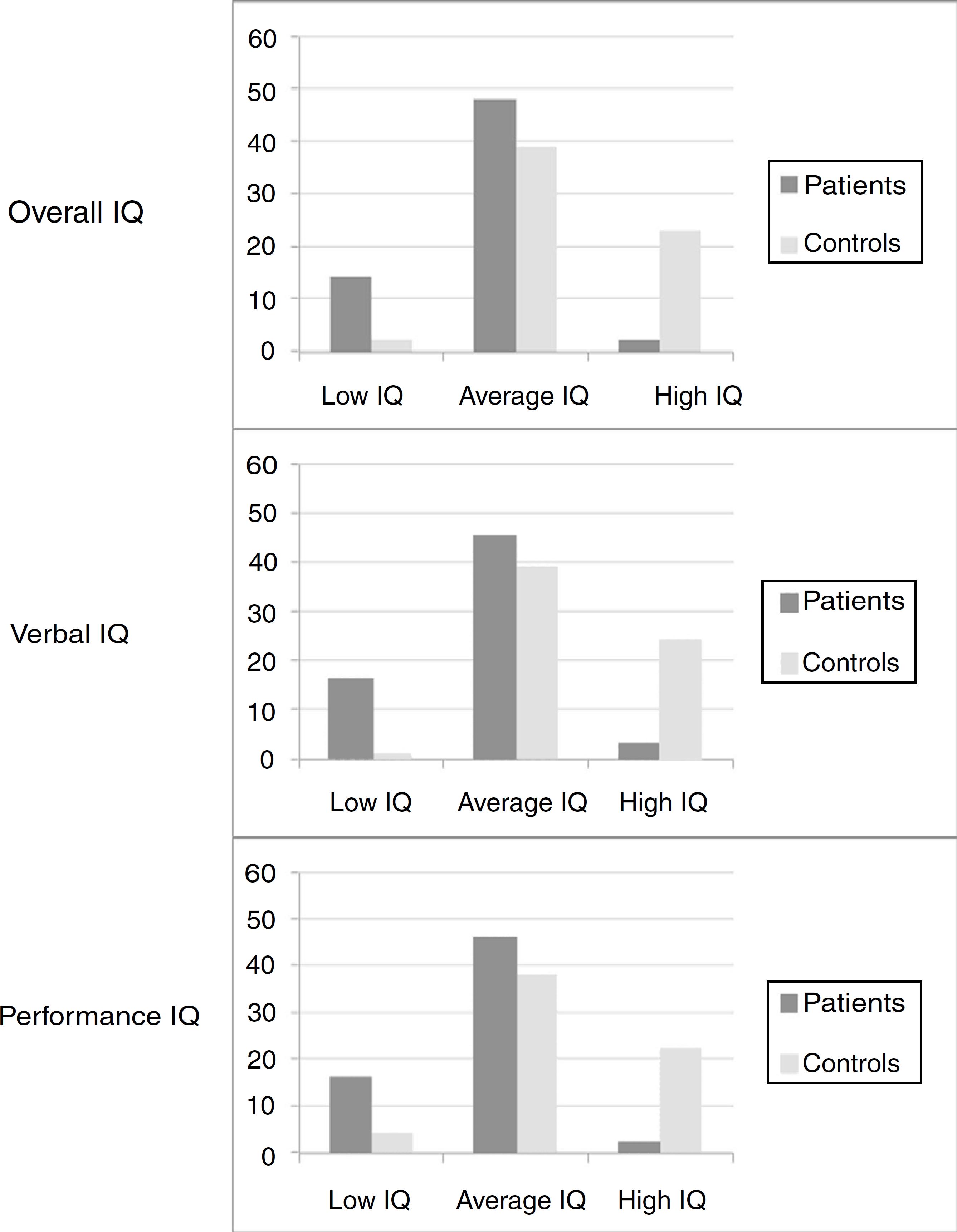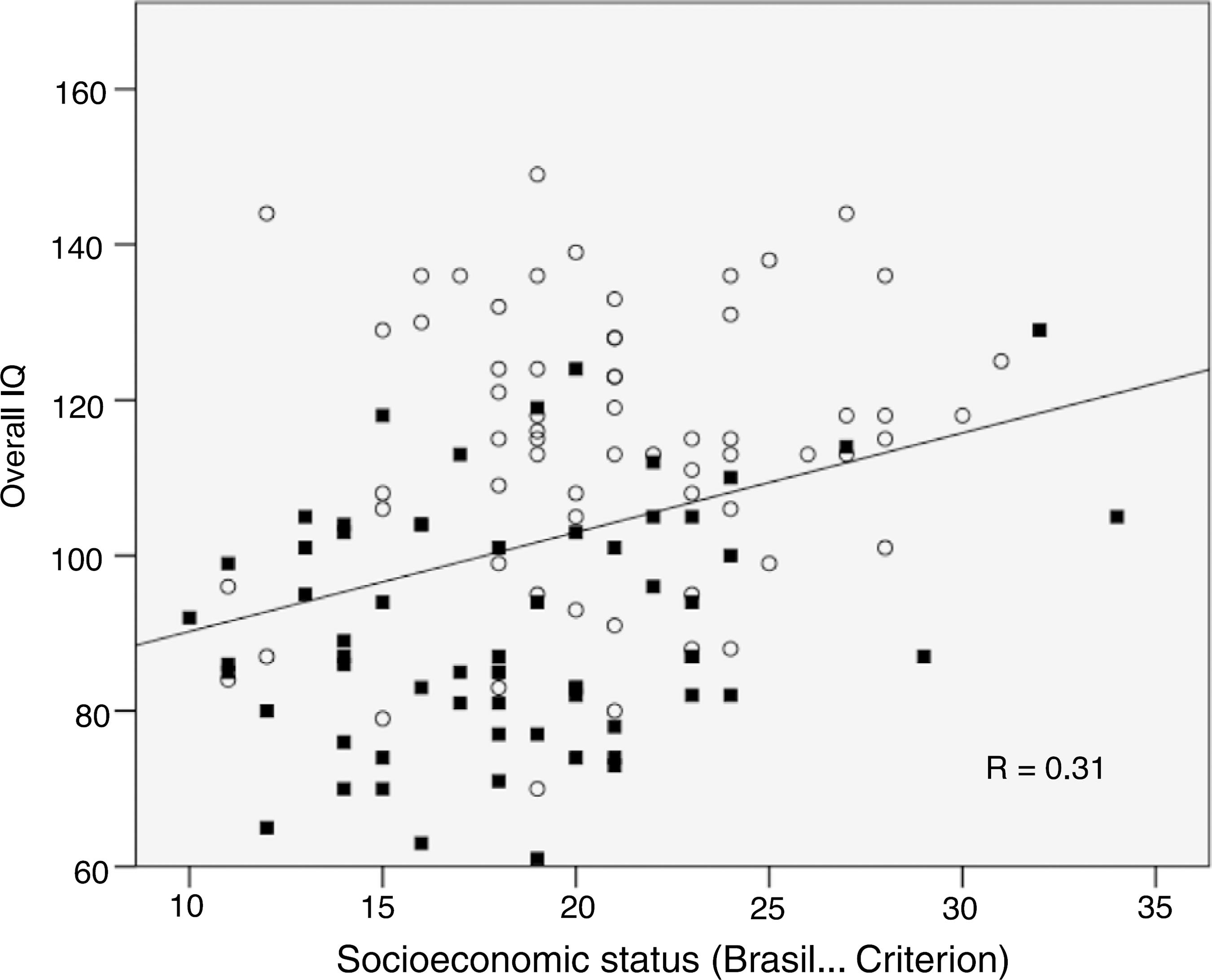Abstract
Objective:
To evaluate the cognitive abilities of children and adolescents with sickle cell anemia diagnosed through neonatal screening and to compare them with healthy controls, adjusting the results to their socioeconomic status.
Methods:
Cognitive assessment was performed with the Wechsler WISC-III scale in 64 children and adolescents with sickle cell anemia and in 64 controls matched by gender and age, without the disease and without neurological impairment; socioeconomic status was measured by the Criterion Brasil.
Results:
All cognitive scores were lower in the group of patients. The mean overall IQ, Verbal IQ, and Performance IQ were, respectively, 90.95 for the group of patients and 113.97 for the controls (p < 0.001); 91.41 for the group of patients and 112.31 for the controls (p < 0.001); 92.34 for the group of patients and 113.38 for the controls (p < 0.001). Scores for processing speed, distraction resistance, and perceptual organization were also significantly lower in patients. A direct and significant correlation was detected between socioeconomic status and cognitive scores. In the multivariate analysis, for the same socioeconomic status, a child with sickle cell anemia had an average IQ of 21.2 points lower than the mean IQ observed for the controls (p < 0.001), indicating that the disease, adjusted for the socioeconomic effect, is a strong predictor of the overall IQ.
Conclusion:
The cognitive impairment of children with sickle cell anemia is severe and manifests even when the disease effect is adjusted to the socioeconomic status. In the authors' view, such impairment requires an early preventive approach in order to avoid this cognitive damage.
KEYWORDS
Sickle cell anemia; Cognition; Child; Adolescent medicine; Cerebral infarction; Sickle hemoglobin


